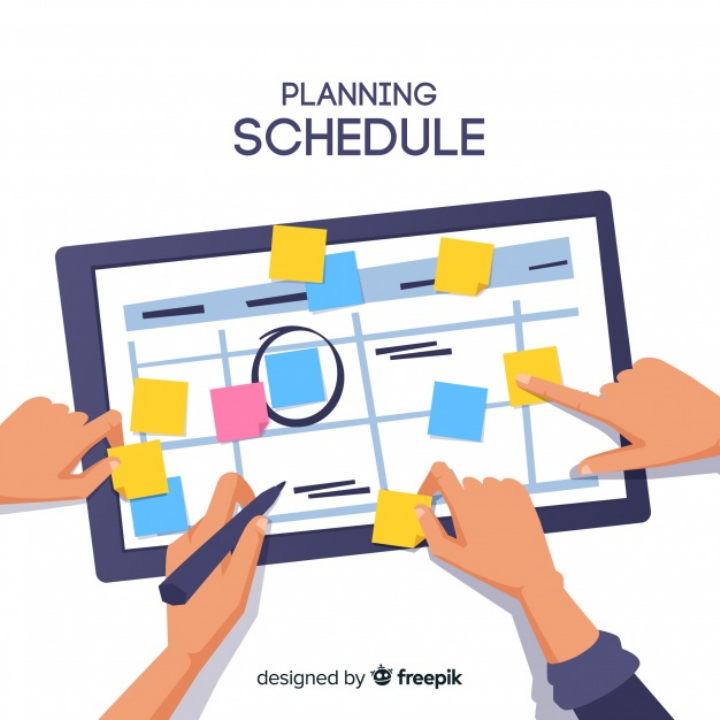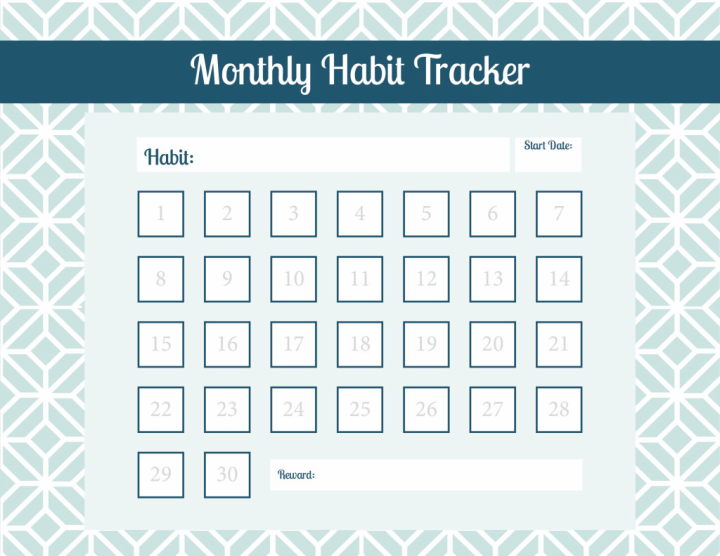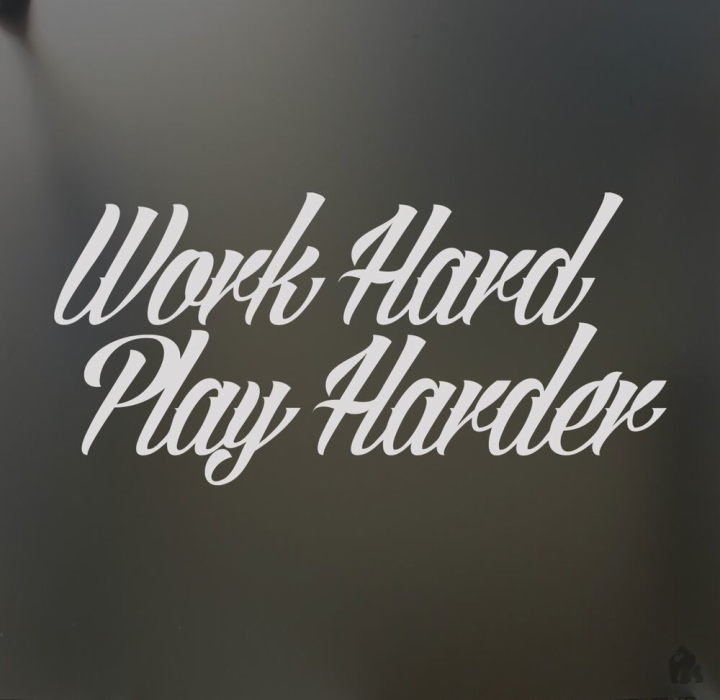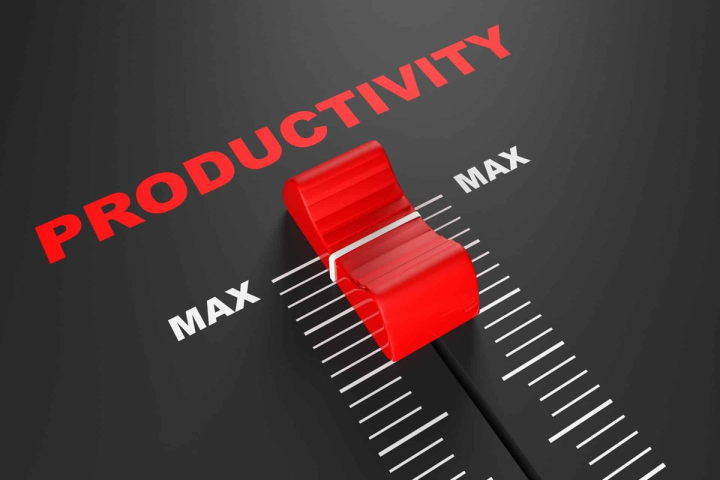Everyone wants to get more done every day and then enjoy plenty of time for themselves, with their families and friends. But very few know exactly how to be productive.
In this post, I will list my rules for a productive day. These rules have worked for me for 5 years, since I became a freelancer. And they helped me achieve more than I ever did during my professional career with jobs.
Let’s agree on what productivity is
How would you define productivity? For different people, it means different things. But here is my definition and most people would agree.
For me, productivity is achieving 80% of all the goals I set for myself on a given day. That number 80 gives me peace. It lets me walk away from my work with a sense of accomplishment. It helps me tune out of work and enjoy my leisure time for myself and with my family being fully present, without feeling guilty or uncertain about incomplete work.
If I want to write 10 pages of a book and I complete 8, then my day is productive. If I have set 5 tasks for my blog post (e.g. mind map, content, SEO, etc), but I can only finish 4, that is good enough for me.
While productivity has many definitions, I suggest that you begin with a definition as simple and tangible as mine, adjusting it with your desired percentage.
How does one strive for productivity?
Phase 1: Planning and scheduling

Have no more than 3 major goals per day
As a freelancer, I have plenty of things to do. My work life repeats in cycles of two weeks. In those two weeks, I assign myself 4 blog posts, 1 photo album / video from trip India 360, work on my Udemy courses, software development, reading / learning and updating myself on my favourite topics. That’s plenty of things to do within 14 days.
Not so if you know how to prioritise those tasks and set up each day such that you work on ONLY THREE major goals.
A typical city dweller with a standard lifestyle has the capacity for three major goals every day, each one spanning 2 hours. That gives you a work day of 6 hours, usually enough to get a lot done if you work with full focus. But to keep your health, joy for work and sanity, you should work no more than 6 hours. Even the most enjoyable work in the world has a limit beyond which we get bored or tired. Plus there are other things in life to enjoy rather than just perform tasks and tick them off a checklist.
If you commit to start tasks from only three goals per day, then you will usually get a lot done every week. I am not even recommending completing those tasks. Just start three everyday and usually the momentum, time spent and consistency will take care of the completion.
If you are recently married, then relationship goals may be big for you. And it is PERFECTLY OKAY to have relationship goals as one of your three major goals for a day. It need not be all work. Sitting with your spouse and spending time with him/her is very important to strengthen a marriage, especially in the early days. Spending two – three hours on an activity together with your spouse is an awesome goal.
Plan your day in advance
I have an evening routine that starts after dinner and continues for two hours upto my bedtime. One of the tasks during those couple of hours is to plan my next day. I plan and schedule the three major work goals for the next day.
If you live your work life by taking everything that comes your way without a plan, then you are not working on your goals, but what fate has set for you. Your day will pass as you simply consume one sporadic task after another, all with no effect towards what you want to achieve.
Every night, you must pick three goals to work on the following day. This sets your intention in the right direction. If something less important comes up, then you’ll be able to refuse.
Break down long goals into tasks
‘Write a blog post’ is too vague and too long to be actionable. Only actionable points can be scheduled and completed. Actions with very specific goals are even better. E.g., ‘Write 1 chapter today’ is actionable for a lot of people, but the goal, ‘Write the chapter on history of computers’ is even better. The more visual the task in your brain, the more actionable a task is.
For your three big goals for your day, you should have 10 to 12 tasks, each goal split into 3 to 4 tasks. Each task should take between 30 to 60 minutes long, after which you take a 5 or 10 minute break.
When you set actionable tasks with a measurable outcome, and are able to complete that task, you receive a big boost of confidence and a sense of accomplishment. You will be motivated to do more.
For a blog post, the tasks can be ‘draw mind map’, ‘write content’, ‘add formatting and images’, ‘optimise for SEO’. The ‘write content’ tasks may require a focused session of 50 minutes, while the other two can be done in 25 minute sessions each.
Schedule tasks on a calendar
Be it work or leisure, schedule all your tasks on your calendar. What’s scheduled gets done. A calendar saves you from decision making and allows you to start a pre-committed task. If you schedule things, you will most likely not pick up any whimsical task that catches your fancy.
On the contrary, if your day is not scheduled and you see empty slots in your calendar, then you have a higher chance of picking something that is not important that day. Or worse, allow someone else to pick a task for you.
Stick to your schedule
Once a calendar is made, you must stick to what you scheduled before-hand. You have already put a lot of thought into planning your day and committed to tasks that are important to you. So why waver? The point of a schedule is to bring the discipline to focus on what matters to you.
Not sticking to a schedule is like dishonouring your own word. You are breaking a promise made to yourself.
Phase 2: Focus

Cut out everything that’s irrelevant
If you want to be productive, then it’s common sense that you shouldn’t do any irrelevant activities. Because they occupy and waste the time that you’d have otherwise used to work on your goals. How do you measure irrelevance? Simple. If the activity is not leading to your major goals for the day, then it is irrelevant.
Unless you are training to be a news reporter, watching generic or viral news on TV isn’t going to give you any benefit. During the current COVID-19 pandemic, there is zero benefit in watching the news all day and seeing the infection numbers tick up. This also means that you should drastically reduce social media, Netflix binging and anything that doesn’t take you towards your goal.
Does it mean that I become a productive robot cranking out work all day? Not at all. It just means that you carefully plan your activities for the day. Your free time to watch Netflix should be by design, say in the evening when you are spending time with your family. A sudden block of free time in the afternoon shouldn’t lead to a default behaviour of jumping to a news channel or Netflix. That block of free time should be assigned to a task that leads to your major goals. Work while you work and play while you play.
Focus and perform deep work
Be it work or play, your attention should be 100% on your current activity. You shouldn’t be scrolling on a Twitter feed when you are typing the code for your software. You shouldn’t be replying to a text message when you are at a restaurant with your spouse.
Focusing is an intensive activity, but something that’s necessary for incredible productivity. You should commit to working with full focus when you are working on your life’s most important goals. But focusing is extremely hard when your environment is strewn with distractions.
Set up your environment
Distraction and lack of focus is not because you are lazy or incompetent. It is because your environment influences you. If you have a desktop screen that holds icons for Netflix and Solitaire in addition to Microsoft Word, then at least half of the time you will be tempted to indulge rather than work. If you keep chips packets on your kitchen shelf rather than stowing them away out of sight into a box, then you will be tempted to have more chips every time you pass the kitchen.
Setting up your environment requires planning before-hand, when you are not already working. The environment should be set up such that doing what you desire becomes easy, even enjoyable, while doing the undesirable takes so many steps that you give up.
If you want to focus on book writing, an activity that requires intense thinking, your environment shouldn’t have televisions running or children playing. If you are trying to cut down on sugar, you shouldn’t have cookies in your pantry at all.
Don’t shy away from hard work
Anything of value in life requires plenty of work. There will be alternating sessions of physically and mentally demanding tasks, or even both at the same time. A simple example: writing a blog post requires that you spend time at a table, sitting erect for an hour. In addition, your mind must also be focused on writing.
When we look at other peoples’s success, we only look at the glamour and not at the work that went behind the spotlight. The woman who sells thousands of products on Amazon? You see her as earning passive income without any work. Well, she hustled. She found products and suppliers. She makes sure that the suppliers ship on time. She makes sure that the customers get what they ordered. She takes care of customer service, returns and refunds. She is constantly looking for new products to launch.
The man who has thousands of students on his Udemy courses and never has to work again. Well, he did a lot of work already. Shooting videos, writing content, editing, publishing, creating material for new courses, etc.
Success that looks glamorous is possible because of the hard work and hustle that happened before the spotlight was shone.
Phase 3: Habits

Have keystone habits as your base
Habits that encourage productivity beget productivity. So the question is what leads to productivity? The foundations of productivity are focus, punctuality and good health.
For a long productive day, you must be at the peak of your health. For this, you need to establish a good sleep routine, get enough rest every night, eat healthy, exercise, stay hydrated and build your strength. Try to focus on a day you are sick. It just doesn’t happen.
If you do not focus, you cannot get things done and hence cannot be productive. Build a set of habits that help you focus. E.g. if your desk, home or office is a clutter, it is distracting. So build a habit of tidying up. Noise around you destroys focus. So build an environment around you that is conducive to focus. So no loud music while you work and no distractions in the same room that you work in. You need to establish routines and habits that support focused work.
If you cannot start your work on time, you cannot finish it on time and hence your productivity takes hit. Break up your goals into tasks, work backwards and schedule all of them. Your calendar should walk you towards your goals step by step. No schedule means no discipline. Once a calendar is made, you must stick to it with full faith. Your calendar reflects your plan and your own formula for success. Be punctual, wake up on time, sleep on time, have your meals on time, and follow your calendar to the dot. You will get your work done on time, so that all those leisure spots on your calendar will also open up without work bleeding onto them.
Some goals should be daily habits / routines
Let me introduce two types of goals in our lives: closed-ended and open-ended. What the heck are these?
Closed-ended goals have a day on which the goal is achieved. Beyond that you never need to work on that goal. E.g. completing a book on Software Engineering Best Practices is a closed-ended goal. Once the book is completed and published, you never need to work on writing it ever again. The publication event puts a permanent stop for that goal.
Others are open-ended goals, which need work for the rest of your life or for several years. E.g. the goal, reduce my weight to 60 kg seems to be a closed-ended goal. But that goal is actually, ‘reduce to and stay at 60 kg for life’! This means that throughout your life, you need to build the habits that make sure that you stay at 60 kg. E.g. reducing fatty food, exercising every day, being more active such as walking, bicycling and taking the stairs, etc. Other such goals include writing and growing a blog, learning to speak a language fluently and saving 1 crore rupees for retirement.
Some open-ended or lifestyle goals can be written down and scheduled seperately from your daily three goals. E.g. eating healthy is part of lunch and dinner and are not part of your 6 working hours. But others may need to be part of your three major goals and need to be scheduled regularly during your work hours. E.g. I publish 1 blog post every week, so my blog activities recur a few times every week as part of my three daily major goals.
Phase 4: Play is as important as work

Schedule non-negotiable time for fun
Instead of scheduling your goals first, Dr Niel Fiore suggests the ‘unschedule’ in his book The Now Habit. The unschedule is a calendar where you schedule all the things that have nothing to do with your goals. This means lunch, dinner, coffee breaks, time outdoors with your friends, Netflix binge with your spouse, a family gathering you want to attend or playing football with your kids. Schedule all those activities FIRST and commit to them. Under no conditions shall you alter those schedules even if something is left over from work. Strictly.
Next, you will use all the empty slots on your calendar to schedule your goals. Use time chunks of 2 hours per major goal.
Why this reverse approach? First, it makes sure you don’t have a day with all work and no play. It assures you that fun is coming up and that you won’t miss it. This will motivate you to use your work hours only for work. Also, leisure time claimed without fail rejuvenates you and keeps you from burning out.
Second, an unschedule shows you that you only have certain hours every day for work. Most people make the mistake of overestimating the number of hours they have for work. This leads them to overschedule and then get overwhelmed with too many tasks. Or they may think that they have more hours to complete a task than they really do, and fall prey to distractions due to a false sense of abundance.
5: Learn more

Keep learning about productivity
The more you learn about a subject, the more you can apply. Even if you think you are the world’s most productive person, there are so many others who have their own jaw-dropping hacks that you can learn from. Also, different industries apply different forms of techniques that you can transfer to your own domain.
Learn about productivity from books, blogs, videos and podcasts. There’s always more you can learn to achieve your major goals and still get to spend time on leisure activities that you love.
Downloadable resources
| Today’s goals statement: Commit to three major goals every day. | Sample | Download |
| Today’s tasks based on goals: Break the goals into actionable tasks | Sample | Download |
| My habit-worthy goals: Identify goals that need to be regular habits | Sample | Download |
| My day’s calendar: Schedule every task, habit and leisure | Sample | Download or use any popular day planner |
| My distraction busting plan: Make a plan to identify and subdue your distractions |
Sample | Download |
Further reading
Here are some excellent sources for learning more about productivity.
Blog & podcast: A life of productivity by Chris Bailey
Blog: Life Hack Method by Demir and Carey Bentley
Book: The Now Habit by Niel Fiore
Book: Atomic Habits by James Clear
Book: The Pledge by Michael Masterson
Book: Gettings things done by David Allen
Conclusion
Productivity has been a highly sought after skill, but is scarce in practice. Many people know what to do, but are confused about how to proceed. Hopefully this post gives you a framework on how to approach and master the skill of productivity. Work hard, play harder!
